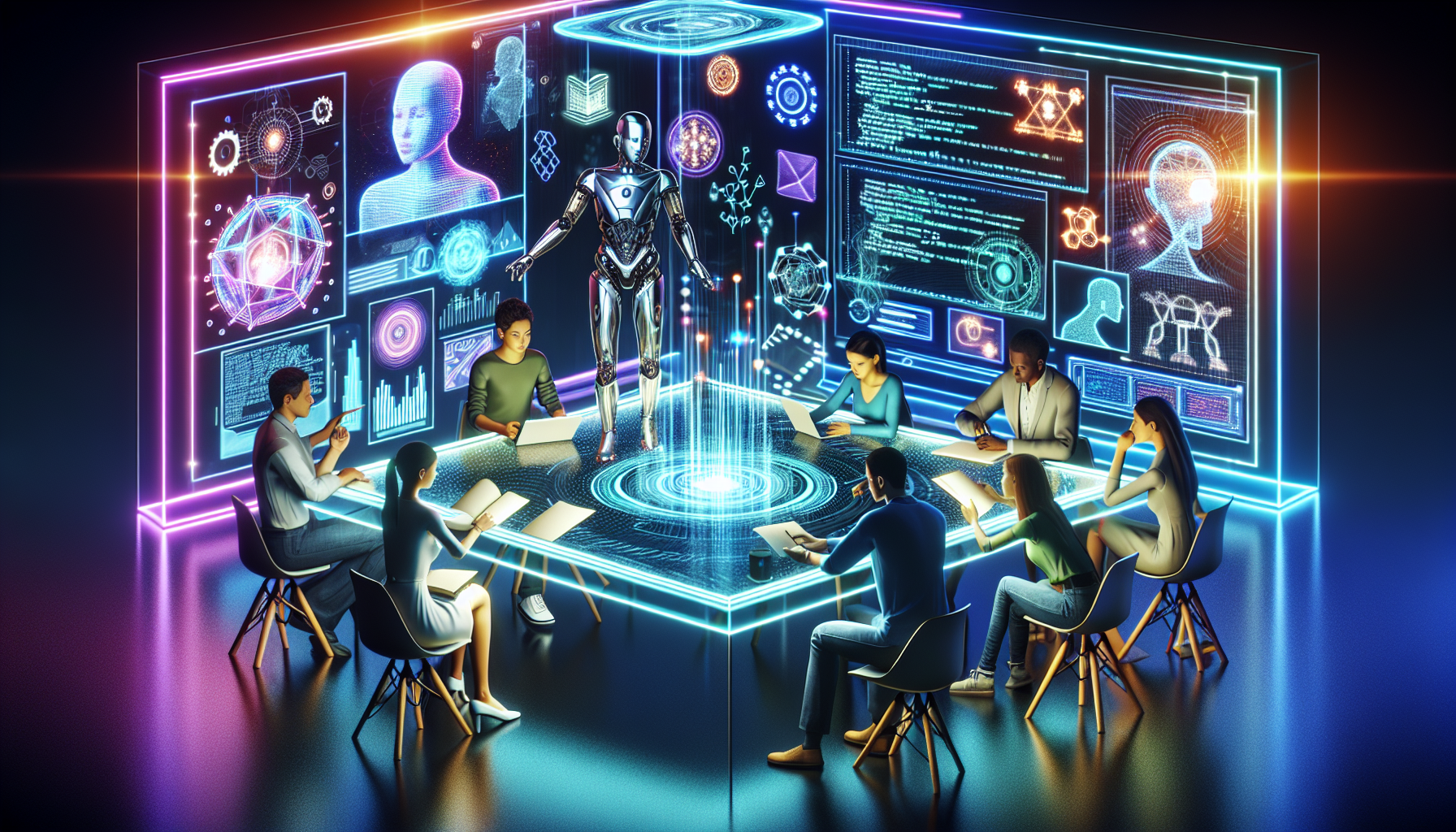
The Rise of the Robot Writers: AI Taking Over Hollywood?
Are we on the brink of trading tinsel town’s screenplay gurus for silicon scribes? Picture this: a serene writing room where the clacking of keyboards is replaced by the soft hum of computers, and steaming cups of coffee are merely decorative. As the film industry zooms into the 21st century, let’s dive deep into the future of AI in screenwriting and unmask some reel-y intriguing trends and predictions. Fasten your seatbelts—it’s going to be a quirky ride!
Scribbles by Silicon: The Current State of AI in Screenwriting
Before we jet-set into the future, let’s take a sneak peek at where AI currently stands in the screenwriting universe. AI tools in the film industry have snugly fit into the roles of assisting with scripts, generating dialogue, and even suggesting plot twists that can make M. Night Shyamalan run for his money. Companies like ScriptBook and others have unleashed algorithms that analyze screenplays to predict box office success, and this is only the crescent moon in the night sky of possibilities. So, what’s next, a robot winning an Oscar for Best Original Screenplay?
1. Collaboration, Not Termination
One of the juiciest tidbits about the future of AI in screenwriting is collaboration. While the thought of AI completely taking over might make every screenwriter’s pen quiver in fear, the true trend leans towards human-AI collaboration. Think of AI as your quirky co-writer who brings to the table unfathomable ideas at warp speed. Screenwriters could employ AI to spitball ideas, overcome writer’s block, or jazz up dialogues. This isn’t about AI stealing the show but enhancing the creativity of human writers. Hollywood, breathe a sigh of relief: your jobs are safe… for now.
2. Personalization Perfection in Pitches
Ever imagined pitching a script tailored perfectly to a studio’s quirky taste? Enter AI: the future of custom screenwriting. By analyzing successful films and trending data, AI can help screenwriters craft a script that rings the right bells for specific audiences or studios. It’s like having a crystal ball but with more data and less mystique. In the future, AI might just become the go-to partner for fine-tuning your pitches, ensuring your screenplay doesn’t just add to the slush pile.
3. From Dystopia to Utopia: Genre Innovation
Who says robots can’t be creative? AI’s potential to churn out novel concepts and experiment with genres could thrust screenwriting into a bold new era. Imagine an algorithm suggesting a romantic comedy that blends quantum physics with matchmaking (talk about finding the perfect “pair” particle!). Or a western that integrates sci-fi elements, turning cowboys into spacemen. The fusion of human ingenuity and AI might just concoct genres we haven’t even dreamed of. Spielberg, ready to direct?
4. The Democratization of Screenwriting
Here’s an uplifting prediction: AI could democratize screenwriting. With AI-driven tools becoming more accessible, anyone from a high school teacher in Tulsa to a budding filmmaker in Timbuktu could pen the next big blockbuster script. This technology might level the playing field, giving voice to untold stories across the globe. More stories, diverse narratives, and perhaps, a more interconnected world—courtesy of our AI pals.
The Final Rewrite: Embracing AI in Scripting
So, what’s the final word on the future of AI in screenwriting? While it’s unlikely that AI will snatch the screenwriting crown any time soon, it’s poised to be a game-changer, a collaborator, and an enhancer of the cinematic storytelling process. Whether you’re a script savant or a newbie with a notebook full of dreams, the AI revolution in Hollywood is something to watch. And who knows? Maybe the next cult classic will flaunt not just star-studded casts but an AI in its credits too. Let the screenplay renaissance begin!






